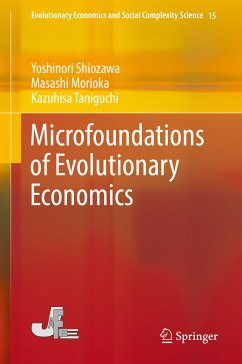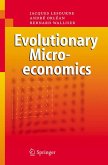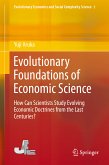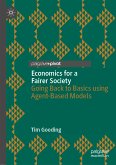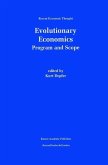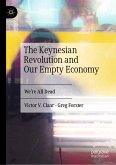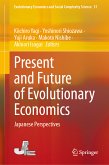This book provides for the first time the microfoundations of evolutionary economics, enabling the reader to grasp a new framework for economic analysis that is compatible with evolutionary processes. Any independent approach to economics must include a value theory (or price theory) and price and quantity adjustment processes. Evolutionary economics has rightly and successfully concentrated its efforts on explaining evolutionary processes in technology and institutions. However, it does not have its own value theory and is not capable of explaining the workings of everyday economics processes, in which any evolutionary process would take place.
Our point of departure is the addition of myopic agents with severely limited rational and forecasting capacities (in stark contrast to mainstream economics). We show how myopic agents, in a complex world, can produce a stable price system and demonstrate how they can adjust their production to changing demand flows. Agents behave without any knowledge of the overall process, and they generate a stable economy as large as the global network of exchanges. This is the true "miracle" of the market mechanism. In contrast to mainstream general equilibrium theory, this miracle can be explained without the need for an auctioneer or infinitely rational agents. Thanks to this book, evolutionary economics can now claim to be an independent approach to economics that can completely replace mainstream neoclassical economics.
Our point of departure is the addition of myopic agents with severely limited rational and forecasting capacities (in stark contrast to mainstream economics). We show how myopic agents, in a complex world, can produce a stable price system and demonstrate how they can adjust their production to changing demand flows. Agents behave without any knowledge of the overall process, and they generate a stable economy as large as the global network of exchanges. This is the true "miracle" of the market mechanism. In contrast to mainstream general equilibrium theory, this miracle can be explained without the need for an auctioneer or infinitely rational agents. Thanks to this book, evolutionary economics can now claim to be an independent approach to economics that can completely replace mainstream neoclassical economics.
Dieser Download kann aus rechtlichen Gründen nur mit Rechnungsadresse in A, B, BG, CY, CZ, D, DK, EW, E, FIN, F, GR, HR, H, IRL, I, LT, L, LR, M, NL, PL, P, R, S, SLO, SK ausgeliefert werden.
Es gelten unsere Allgemeinen Geschäftsbedingungen: www.buecher.de/agb
Impressum
www.buecher.de ist ein Internetauftritt der buecher.de internetstores GmbH
Geschäftsführung: Monica Sawhney | Roland Kölbl | Günter Hilger
Sitz der Gesellschaft: Batheyer Straße 115 - 117, 58099 Hagen
Postanschrift: Bürgermeister-Wegele-Str. 12, 86167 Augsburg
Amtsgericht Hagen HRB 13257
Steuernummer: 321/5800/1497
USt-IdNr: DE450055826
Bitte wählen Sie Ihr Anliegen aus.
Rechnungen
Retourenschein anfordern
Bestellstatus
Storno

